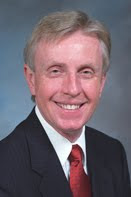 Texas Hospital Association (THA) has hand-delivered a letter in support of HB 117 to the bill's author, Chair McClendon, and to Public Health Chair Kolkhorst's office as of this morning. THA represents more than 450 hospitals and hospital systems in Texas and is a well-respected and oft sought leader in hospital-related education, advocacy, and issues.
Texas Hospital Association (THA) has hand-delivered a letter in support of HB 117 to the bill's author, Chair McClendon, and to Public Health Chair Kolkhorst's office as of this morning. THA represents more than 450 hospitals and hospital systems in Texas and is a well-respected and oft sought leader in hospital-related education, advocacy, and issues.THA's letter states:
"Allowing local jurisdictions in Texas the option to allow syringe exchange programs will prevent new HIV, HBV and HCV infections, improve public health, and save lives without requiring the use of state funds. As hospitals and the health care system implement more cost-saving initiatives and preventive medicine, it is imperative that the state embraces programs that are proven to achieve these goals."
"Based on numerous, extensive research studies, the science is clear: syringe exchange programs are highly cost-effective, lifesaving and do not promote drug use."
THA has consistently support similar legislation in previous sessions. Thank you THA!







